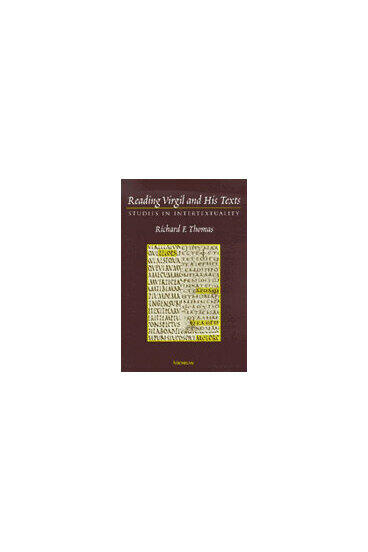Reading Virgil and His Texts
Studies in Intertextuality
Dynamic textual interplay: inherent and inherited
Description
There has long been vital interest in the ways that texts affect each other--through translation, imitation, parody, and other forms of emulation and subversion. Throughout the last two millennia, the Virgilian text has created its own intertextual heritage, persisting in the works of Eliot, Frost, Lowell, and Heaney. Richard F. Thomas's new volume demonstrates that such control and manipulation of the inherited tradition is to be found with great intensity in the very author who, in turn, created his own complex tradition.
The articles and notes included in this volume have been selected for their diachronic aspect in addition to the synchronic status they had in their original context. Dealing with the intricate ways in which Virgil, and in the introductory chapter his predecessor Catullus, manipulated and appropriated their inherited Greek and Roman literary tradition, this book presents a coherent profile, through these detailed studies, of the mechanics of one of the most dynamic periods in the literary history of any culture.
Richard Thomas--one of the most important voices in Latin literary studies today--shows little anxiety about objections to authorial intentionality. Throughout there is a working assumption that intertextual connections can be established and, further, that functions and purposes, even intended ones, may be inferred from those connections.
This book will be of interest to scholars and students of Greek and Latin literature but will also be of great value to students of medieval, Renaissance, and early modern vernacular literatures, most of whose poets see themselves as closely connected to Virgil.
Richard F. Thomas is Professor of Greek and Latin, Harvard University.
Richard F. Thomas is Professor of Greek and Latin, Harvard University.

